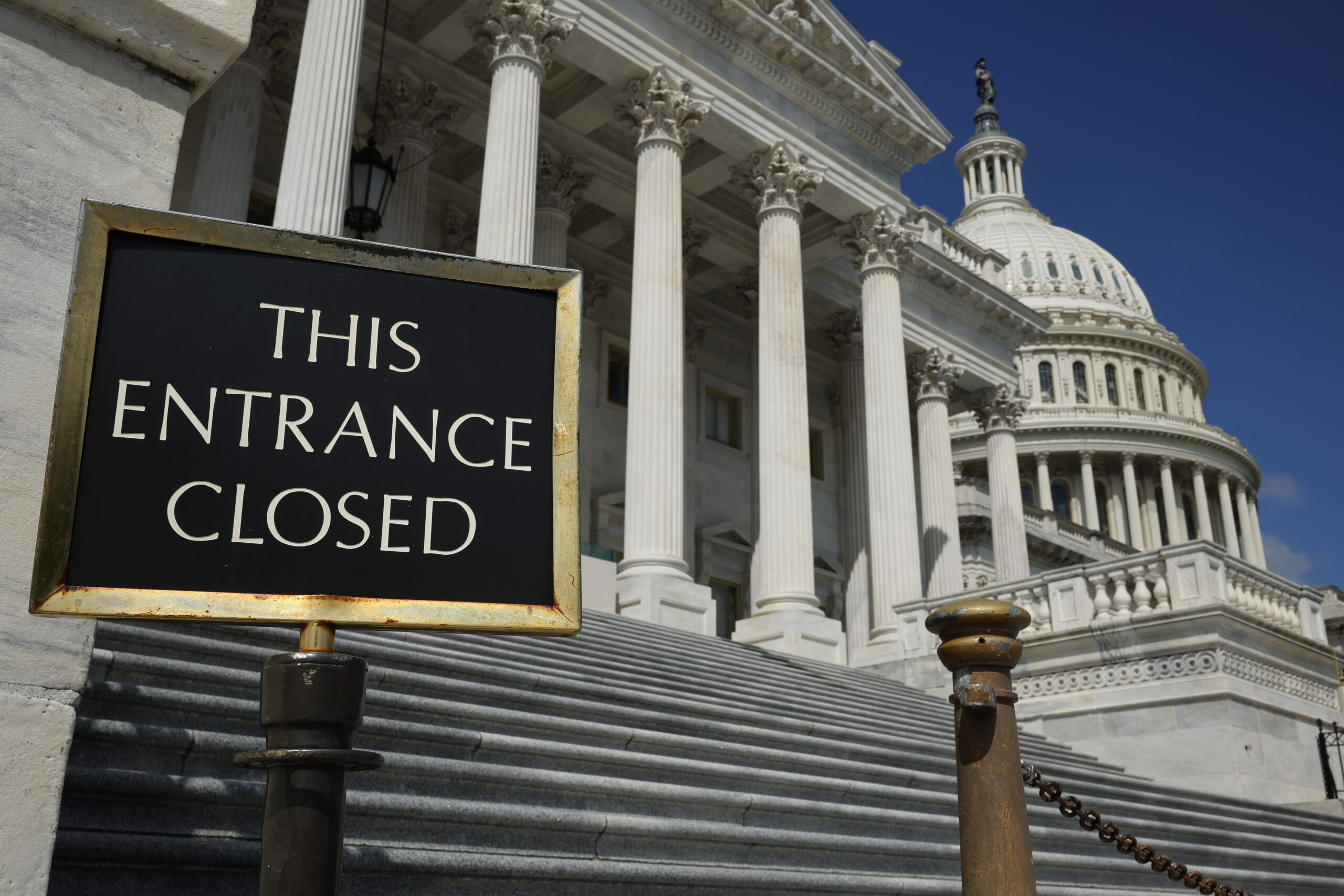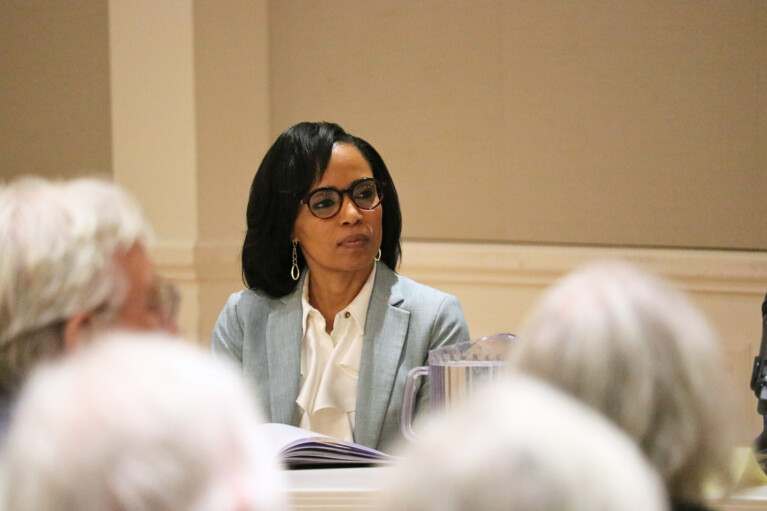As Other States Move to Restrict Voting, the Maryland General Assembly Passed Bills to Expand Access
After an unconventional 2020 election which saw unprecedented absentee ballot use, Maryland lawmakers instituted a slew of election reforms during the 2021 legislative session.
Those measures include permanently expanding mail-in voting, ramping up the number of early voting centers and making voting materials more accessible to students and military voters – far cries from the restrictive voting measures being put in place by other states.
Restrictive voting laws enacted in other states have recently been a flashpoint in Congress: During a Tuesday U.S. Senate Judiciary Committee hearing, senators discussed restoration of a key section in the Voting Rights Act that would prevent states, mostly in the South, from changing their election laws without federal approval.
During the more than four-hour hearing, witnesses opposed to a sweeping new Georgia law warned that if Congress did not modernize and pass Section 4 of the Voting Rights Act, then voters of color would be disenfranchised. That law contrasts sharply with Maryland’s recent voting expansions and limits absentee voting, restricts drop boxes to inside early voting locations except during a public health emergency, and makes it illegal for volunteers to hand out food and water to those waiting in long lines to cast their ballots.
“Record numbers of Georgians used their voices and voted in the last election,” Sen. Raphael Warnock, a Georgia Democrat who testified as a witness, said at the hearing. “And in response to this swell in Democratic participation, politicians in our state legislature responded not in celebration but with retaliation.”
Voting rights advocates and Democratic lawmakers in Maryland invoked restrictive voting laws in other states throughout the 2021 session, leading to passage of several measures to make voting easier here.
Lawmakers considered dozens of election reforms throughout the session. Some ambitious efforts, like making absentee ballots the default voting method in Maryland, never received a committee vote. Still, fair elections advocates say lawmakers took concrete steps to improve voting access in Maryland.
Here are a few key election reforms passed by the General Assembly in the 2021 session:
Absentee voting expansion
Senate Bill 683, introduced by Sen. Benjamin F. Kramer (D-Montgomery), will let voters choose to get ballots in the mail without having to reapply after each election. Kramer has been working on similar measures for years, but his proposal finally picked up steam after the largely vote-by-mail 2020 elections.
Del. Jheanelle K. Wilkins’ (D-Montgomery) coinciding version of the bill, HB 1048, also won approval from lawmakers during the 2021 session.
In addition to creating the permanent absentee ballot list, Kramer’s proposal will require election officials to consider factors like accessibility to historically disenfranchised communities when deciding where to place ballot drop-off boxes. Those boxes were popular among voters during the 2020 election cycle due to worries about Postal Service delays.
Other factors local boards will have to consider include proximity to “dense concentrations” of voters, whether or not the drop-off box is accessible by public transportation, maximizing voter participation and equitable distribution throughout their county. State election officials will be responsible for giving final approval to those drop-off box locations under Kramer’s bill.
“This bill is a tiny step to give your resident their best shot, their best opportunity, to participate in our democracy,” Kramer said in a floor debate before the bill won final approval in March. It became law in April, when Gov. Lawrence J. Hogan Jr. (R) allowed it to take effect without his signature.
Joanne Antoine, the executive director of Common Cause Maryland, said the bill will change elections “drastically” in Maryland, and improve ballot access for people with disabilities. She said it will also boost voter confidence in drop-off boxes, since it requires they be monitored by security cameras.
“This is going to make it easier for the voters who vote by mail regularly,” she said. “That varies from voters with disabilities to others who just like the convenience.”
Increasing the number of early voting centers
Access to early voting centers was a high visibility issue during the 2020 election, with Del. Brian Crosby (D-St.Mary’s) charging that the lack of a second early voting center in his county amounted to “voter suppression.”
And access to early voting centers has long been a contentious issue in Montgomery County: White Oak residents have repeatedly asked election officials for an early voting center in the majority-minority neighborhood in recent years.
House Bill 745, introduced by House Majority Leader Eric G. Luedtke (D-Montgomery) will overhaul the statewide formula for determining the number of early voting centers in Maryland’s counties. In addition to increasing the number of early voting centers in many jurisdictions, the bill will require counties to consider a variety of factors – including accessibility to historically disenfranchised communities – when deciding where to put early voting centers.
Before the bill’s passage, counties with less than 125,000 voters were required to have just one early voting center; counties with between 125,000 and 200,000 were required to have three early voting centers; counties with 200,000 to 300,000 voters were required to have four early voting centers; counties with 300,000 to 450,000 were required to have seven early voting centers; and counties with more than 450,000 registered voters were required to have 11 early voting centers.
Luedtke’s bill will broaden that formula, and require that counties:
- With less than 50,000 registered voters have one early voting center;
- With 50,000 to 100,000 registered voters have two early voting centers;
- With 100,000 to 200,000 registered voters have three early voting centers;
- With 200,000 to 300,000 registered voters have five early voting centers;
- With 300,000 to 400,000 registered voters have seven early voting centers;
- With 400,000 to 500,000 registered voters have nine early voting centers;
- With 500,000 to 600,000 registered voters have 11 early voting centers;
- And with more than 600,000 registered voters have 13 early voting centers.
Counties and Baltimore City are able to tack on an additional voting center if needed under both previous law and the bill, which also took effect without Hogan’s signature.
Expanding ballot access for current and formerly incarcerated voters
Marylanders who have been released from prison, are held pretrial detention or are serving time for misdemeanor convictions have had the right to vote for years in Maryland, but advocates have long said the state needs to do more to make sure those voters have access to ballots.
Nicole Hanson-Mundell, the executive director of Out For Justice, said in a statement that her group has seen a common theme among those eligible voters since their voting rights were restored in 2016: Many weren’t informed about their newly restored rights, and thousands of incarcerated individuals didn’t have the opportunity to cast their ballots.
Out For Justice was among the advocacy groups that partnered with the State Board of Elections last year to expand absentee ballot access to incarcerated voters, and headed up the Expand the Ballot Expand the Vote Coalition, a group of 20 non-partisan, nonprofit organizations, that pushed state officials to help incarcerated Marylanders participate in the 2020 election.
House Bill 222, sponsored by Wilkins, aims to permanently expand ballot access for those eligible voters. The bill would require the Department of Public Safety and Correctional Services to provide everyone released from a correctional facility with a voter registration application, and require election officials to step up efforts to inform eligible voters who are incarcerated about their voting rights.
It is among the bills that Hogan will act on in the next few weeks following the end of the legislative session.
Hanson-Mundell hopes the legislation will be emulated across the United States, and said in a statement that Maryland is just the second state in the country with such a bill. But she also thinks there’s still work to be done, and pointed out that language about ballot drop-off boxes in correctional facilities was removed from the bill, although a ballot box was included in a local Baltimore City bill from Sen. Cory V. McCray (D-Baltimore City).
“We only ended up with the one drop box for Baltimore City, which is grossly problematic,” the Out For Justice statement reads.
Improving voter education
Hogan will also decide whether to sign the Student and Military Voter Empowerment Act from Luedtke and Sen. Sarah K. Elfreth (D-Anne Arundel County). That bill would require local election officials to contact “large residential communities” such as universities, military bases and senior communities when determining polling locations.
If enacted, it would set up processes for military or overseas voters to submit federal post card applications electronically, require public higher education institutions to designate a student voting coordinator and create voting plans, and require state election officials to set up a website relating to voter registration and voting for students in higher education.
The bill originally mandated two-hour excused absences for students at public higher education institutions, but that language was stripped from the bill before it won final passage.
Public campaign financing reform
Senate Bill 415, introduced by Sen. Paul G. Pinsky (D-Prince George’s), would overhaul the state’s public campaign financing by moving to a tiered system for using public funds to match qualifying gubernatorial campaign contributions if it becomes law.
The bill also awaits action from Hogan, who, in 2014, was the first gubernatorial candidate in Maryland history to be elected using public funds through the Fair Campaign Finance Fund.
The bill would set a cap of $250 for eligible donations, and provide $8 in public matching funds per eligible private dollar for the first $50 of a donation, $6 per eligible private dollar for the second $50, $2 per eligible private dollar for the third $50 and no match funding for the remaining $100.
Candidates could receive up to $3 million in both the primary and general election, up to $6 million in an election cycle, according to the bill language. A ticket that is unopposed in a primary election would only receive one-third the amount of matching funds.
Previously, qualifying gubernatorial tickets received $1 in public funds for everyone $1 in eligible private contributions they raise. Tickets without opposition received $1 in public funds for every $3 they raised.
Pinsky’s bill would also mandate enough money in the Fair Campaign Financing Fund to provide full funding to two gubernatorial campaigns in a primary election and one gubernatorial campaign in a general election, including a $4 million state appropriation to the fund for the 2023 fiscal year.
Emily Scarr, the director of Maryland PIRG, told Maryland Matters that she hopes the reform will increase participation in the state’s public campaign financing system.
“It should be better for all candidates, because they get to change the way they run for office,” Scarr said. “Instead of spending their time chasing those big checks from out-of-state donors, lobbyists or corporations, they can spend their campaign time building support from the voters.”
She also thinks the bill would boost voter confidence in public campaign financing, since it bars any campaign contribution larger than $250 for publicly financed candidates. Current law allows donations more than $250 for program participants, although those contributions don’t qualify for public match funding.
States Newsroom reporter Ariana Figueroa contributed to this report.




 Creative Commons Attribution
Creative Commons Attribution